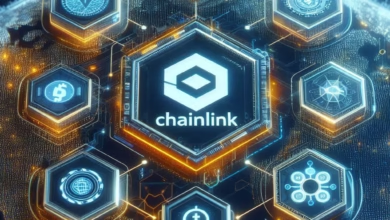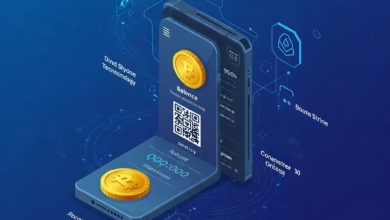
You’ve likely heard the buzz around DeFi, or Decentralized Finance. It sounds complex, but at its core, DeFi represents a revolutionary shift in how financial services operate. Instead of relying on traditional institutions like banks, DeFi aims to build an open, transparent, and accessible financial system using blockchain technology. This guide will break down what DeFi is, its key components, and why it’s gaining so much attention.
Understanding the Basics: What Does Decentralized Finance Mean?

Decentralized Finance (DeFi) refers to financial applications built on decentralized blockchains, primarily Ethereum. This means that instead of a central authority controlling financial activities, the rules are encoded in smart contracts – self-executing code – that are transparent and immutable on the blockchain. Think of it as a financial system run by code, not corporations. This decentralization aims to offer more transparency, reduce the need for intermediaries, and potentially provide greater access to financial services for everyone.
Key Components of DeFi: The Building Blocks of a New Financial System
The world of DeFi is built upon several key components:
- Blockchain Technology: The foundational layer that provides transparency, security, and immutability for all DeFi transactions.
- Smart Contracts: Self-executing agreements written in code that automate financial processes like lending, borrowing, and trading without the need for intermediaries.
- Decentralized Applications (dApps): User-friendly interfaces that allow individuals to interact with DeFi protocols and access various financial services.
- Cryptocurrencies and Tokens: Digital assets that serve various purposes within the DeFi ecosystem, such as collateral, governance, or utility.
- Stablecoins: Cryptocurrencies designed to maintain a stable value relative to a traditional asset like the US dollar, facilitating transactions and reducing volatility.
Benefits of DeFi: Why the Excitement?

DeFi offers several potential advantages over traditional finance:
- Accessibility: DeFi aims to provide financial services to anyone with an internet connection, regardless of their location or socioeconomic status.1
- Transparency: All transactions on the blockchain are publicly viewable, fostering greater transparency compared to traditional financial institutions.
- Efficiency: Smart contracts automate processes, potentially leading to faster and cheaper transactions by removing intermediaries.
- Composability (“Money Legos”): DeFi protocols can be built on top of each other, creating innovative and interconnected financial applications.
- Permissionless: In most cases, you don’t need to go through lengthy approval processes to access DeFi services.
Potential Risks and Challenges of DeFi: What to Be Aware Of
While DeFi offers exciting possibilities, it’s crucial to be aware of the associated risks and challenges:
- Smart Contract Risks: Bugs or vulnerabilities in smart contract code can lead to loss of funds.
- Volatility: The value of cryptocurrencies used in DeFi can be highly volatile, impacting the value of your assets.
- Security Risks: Despite the decentralization, users are still responsible for securing their own wallets and private keys. Scams and hacks are prevalent in the DeFi space.
- Complexity: Understanding and navigating the various DeFi protocols and applications can be challenging for beginners.
- Regulatory Uncertainty: The regulatory landscape for DeFi is still evolving, which could impact the future of the industry.
Getting Started with DeFi: A Beginner’s Approach

If you’re interested in exploring DeFi, here’s a cautious approach for beginners:
- Educate Yourself Thoroughly: Start by learning the fundamentals of blockchain, cryptocurrencies, and how DeFi protocols work.
- Start Small: Begin with a small amount of capital that you’re comfortable potentially losing.
- Use Reputable Platforms: Research and choose well-established and audited DeFi platforms.
- Focus on Simpler Applications: Begin with basic activities like earning interest on stablecoins before venturing into more complex strategies.
- Prioritize Security: Secure your crypto wallets with strong passwords and enable two-factor authentication. Understand the risks of custodial vs. non-custodial wallets.
- Never Share Your Private Keys: Your private keys are the keys to your crypto assets. Keep them safe and never share them with anyone.
The Future of Finance? DeFi’s Potential Impact
DeFi has the potential to disrupt traditional finance by offering more open, transparent, and accessible financial services. While it’s still in its early stages and faces challenges, its rapid growth and innovation suggest it could play a significant role in the future of finance. Understanding the basics of what DeFi is is the first step in navigating this evolving landscape and determining its potential impact on your financial future.





